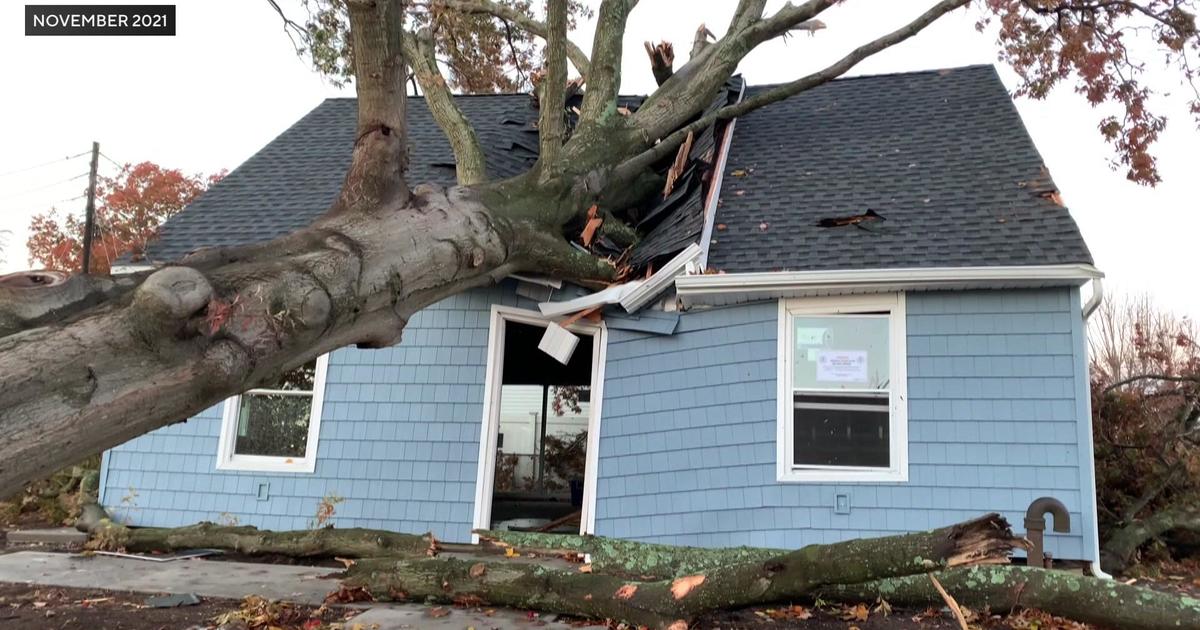City Council Discusses Regulations, Pricing For Uber
NEW YORK (CBSNewYork/AP) -- New York is waging a turf war on wheels.
About 13,000 yellow cabs hailed with a hand raised in the air are now competing with hundreds of app-driven private black cars summoned by tapping a smartphone screen.
The urban faceoff reached a fever pitch Monday morning when City Council members grilled representatives of the popular Uber service that operates globally -- from New York and London to New Delhi and even China.
When first offered in New York in 2012, Uber rides were less expensive than car services booked by phone or online.
City Council Discusses Regulations, Pricing For Uber
Riders first register with a credit card via cellphone, which later is used to signal the nearest car in any neighborhood using the GPS system. Drivers recognize waiting passengers when a call comes in with a previously fed client photo.
But now, City Council members are challenging the legality of what they say are Uber's surging prices.
The TLC reported that Uber's agreement with it provides for charging a maximum of $39 per mile/$9.50 per minute, in all, up to seven times the normal fare, CBS2's Steve Langford reported.
"...If it looks like price gouging, if it sounds like price gouging, if acts like price gouging, it is probably price gouging," said City Councilman David Greenfield.
Company spokeswoman Natalia Montalvo argues "Dynamic pricing ensures Uber remains a reliable ride in communities during times of peak demand.'' That's when market supply and demand can affect the price.
She said users must approve any price before a trip.
But Councilman Greenfield said Uber is using loopholes to price gouge.
"You can use all sorts of fancy names -- you can call it surge pricing, dynamic pricing, competitive pricing," he said. "And I'm sure that the good folks at the $40 billion corporation of Uber have had teams of people to come up with different ways to spin it, but at the end of the day it is simply price gouging."
Ydanis Rodriquez, chairman of the council's transportation committee, said surge pricing takes advantage of customers when they're in a traffic crunch.
"App-based technology has created confusion regarding dispatching and accountability,'' he said.
As WCBS 880's Alex Silverman reported, at Uber's top surge price, a trip from Brooklyn to LaGuardia Airport could cost more than $700.
Greenfield has proposed a bill would allow Uber to charge no more than double the normal price of fare.
Colin Tooze, who represented Uber at the hearing, tried to convince the council that a price cap isn't fair.
"We use surge pricing or dynamic pricing to get more cars on the road to help ensure that users always have a ride when they need it most," Tooze said. "That would be unhelpful for the drivers and it would also be unhelpful to the riders."
But the argument didn't work on Greenfield, Silverman reported.
"Never in my life have I walked into a restaurant and waited on line and they said hey Greenfield, you want falafel today? It's $40 bucks because we've got a long line. I'm sorry, that's ridiculous," he said.
Council members also heard from Taxi & Limousine Commissioner Meera Joshi, who said the TLC hasn't received many complaints on overcharging from Uber.
"One of the reasons for that -- I mean, there's probably more in the media than we've actually gotten as complaints -- is it may be that many times people complain to the company rather than TLC when they have an issue," she said.
Uber testified it doesn't have the number of complaints filed over surge pricing.
Some on the City Council support Uber's surge pricing.
"This is capitalism at its best," said Councilman Antonio Reynoso. "It is truly what we're talking about when we let the markets drive the system."
On the streets of New York City though, it was tough to find that kind of support, Langford reported.
"If I had to use Uber and they tried to gouge me like that I don't think I would use them again," said Doug Bryant.
Some council members argue Uber also is violating city codes regulating both the yellow taxi fleet and other black car services. While the issue is resolved, city officials last week temporarily shut down five of Uber's six New York bases for allegedly refusing to submit transit records.
Last week, Uber also was banned in Madrid, Spain.
Until recently in New York, "catching a cab'' was simple, though often requiring some hustling in traffic or bad weather.
The word "Taxi!'' has practically become a refrain for a common Manhattan sight: passengers racing breathlessly down a street to catch a ride before someone else does. Sometimes customers rush to be first opening the doors of available cabs, coming face to face in the back seat.
That scene is avoided with the silent, high-tech hails for the novelty rides that are now fueling shock waves in the city's taxi industry.
Drivers and owners of taxis say Uber and other similar, smaller companies are taking a bite out of their income -- while setting their own rules.
You May Also Be Interested In These Stories:
(TM and © Copyright 2015 CBS Radio Inc. and its relevant subsidiaries. CBS RADIO and EYE Logo TM and Copyright 2015 CBS Broadcasting Inc. Used under license. All Rights Reserved. This material may not be published, broadcast, rewritten, or redistributed. The Associated Press contributed to this report.)



